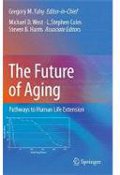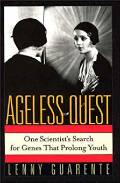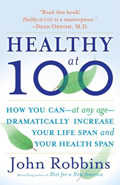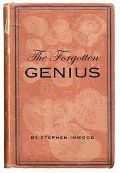Leslie Orgel Proposes the "Error Catastrophe" Theory of Aging
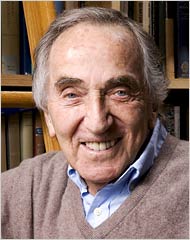 Who:Leslie Orgel
Who:Leslie OrgelWhen:February 15, 1963
Methods: Orgel hypothesizes that translation errors could decrease the fidelity of translation, setting in motion a vicious cycle ultimately causing a critical failure of the gene expression machinery; he further proposes that the resulting loss of cell viability could be a contributing factor in the aging process.
Institution: University of Cambridge
Where: Cambridge, England
Fidelity of protein translation is likely to be much lower than the fidelity of DNA replication -- in other words, translation introduces errors into individual proteins at a much higher rate than replication introduces mutations into DNA.
Orgel considers two types of proteins: those involved in metabolism, and those involved in information processing. For metabolic proteins, translational error isn't a long-term problem for the cell, since a malfunctioning protein is simply one of many. Likewise, for translational errors causing loss of function in information processing proteins: the error isn't heritable, and a small decrease in the efficiency of gene expression is unlikely to pose a serious problem.
However, information processing proteins can be altered in another way: by mutations that decrease the fidelity with which they process or propagate genetic information. Lower-fidelity transcription and translation will result in more mutations. This is the core of Orgel's idea: "errors which lead to a reduced specificity of an information-handling enzyme lead to an increasing error frequency. Such processes are clearly cumulative and...in the absence of an imposed selection for "accurate" protein-synthesizing units, must lead ultimately to an error catastrophe; that is, the error frequency must reach a value at which one of the processes necessary for the existence of viable cell becomes critically inefficient."
Orgel then proceeded to ask whether such a phenomenon could play a role in the aging process. At the time, there was not sufficient evidence to draw a conclusion, and Orgel is careful not to overstep: "I wish to make it clear that I am not proposing here that the accumulation of protein transcription errors is the mechanism of ageing. My object is the more modest one of pointing out one source of progressive deterioration of cells and cell lines. Since I am unable to estimate the time scale of this process, I can only suggest experiments which should show where, if anywhere, it contributes to the ageing process in higher organisms."
(The above should be considered an outline of Orgel's logic and conclusions. The error catastrophe did not withstand experimental testing, but it was nonetheless influential and therefore represents an important contribution to theories of aging.)
References
- Orgel, LE. The maintenance of the accuracy of protein synthesis and its relevance to ageing. PNAS 49:517-21 (1963)

